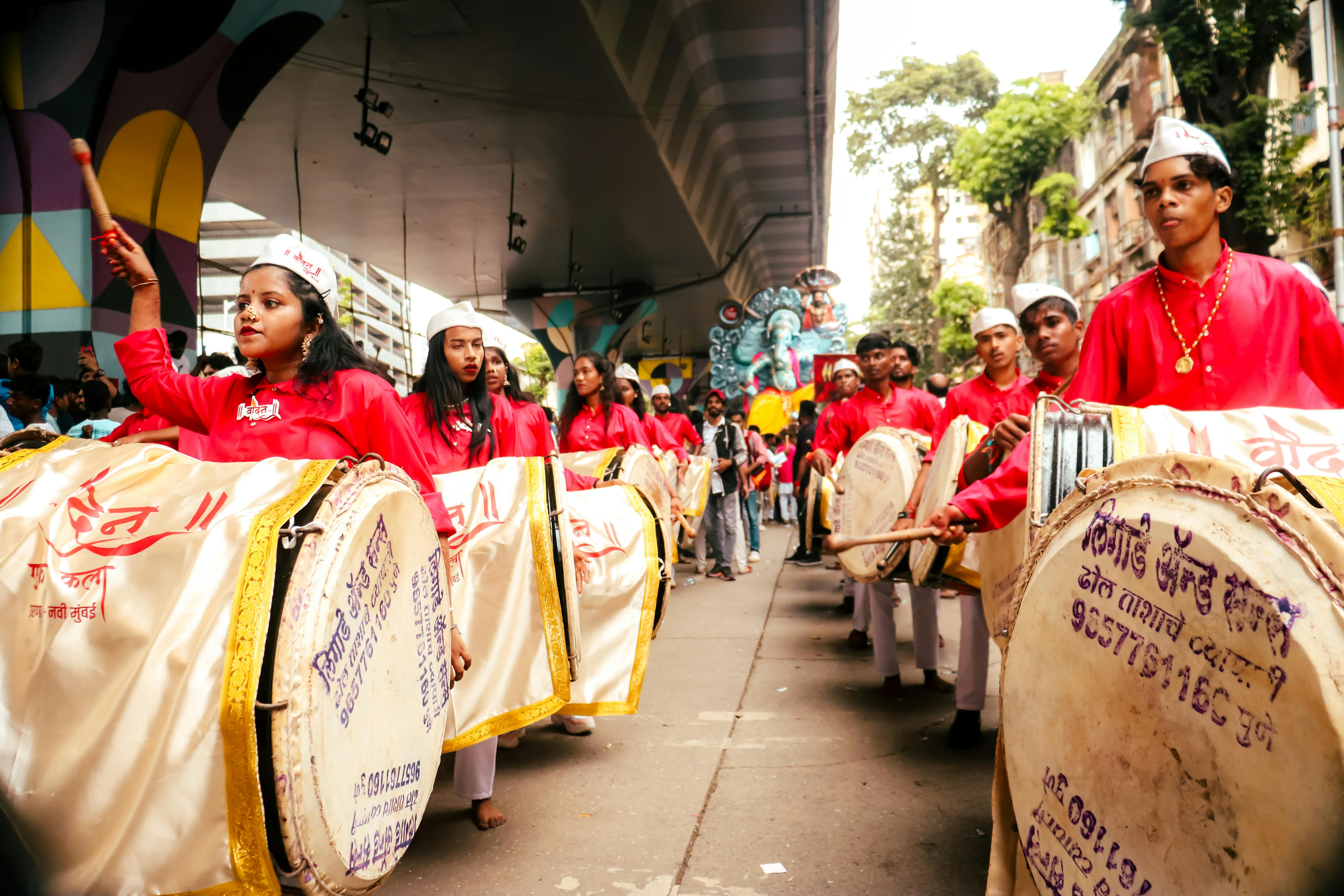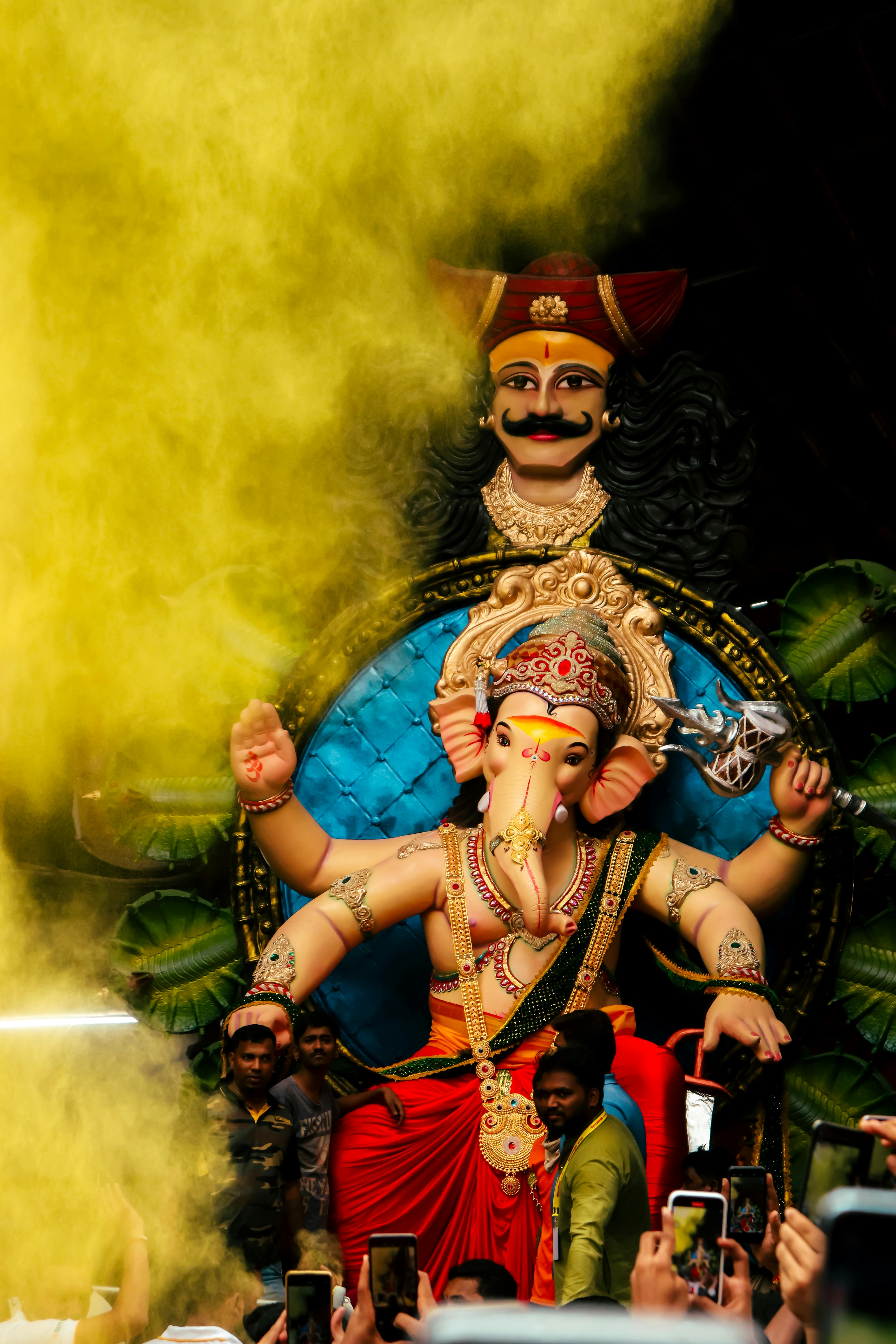For those seeking a profound spiritual experience, there is no place quite like Varanasi, the iconic city located on the banks of the sacred Ganges River. Wandering through its labyrinthine alleys and witnessing the multitude of colorful rituals and ceremonies, one can truly understand why Varanasi is considered the spiritual heart of India. From the ancient temples that house deities worshipped for centuries to the bustling waterfront where devotees come to cleanse their sins in the holy waters, Varanasi is a vibrant tapestry of faith and devotion. Join us as we explore the mystical charm and deep-rooted spirituality that make Varanasi a must-visit destination for those seeking enlightenment and a connection to the divine.

History of Varanasi
Varanasi, also known as Kashi or Benaras, holds a rich and ancient history that dates back thousands of years. Its roots can be traced back to the time of the Indus Valley Civilization, making it one of the oldest continuously inhabited cities in the world. The city has witnessed the rise and fall of numerous empires and has played a significant role in shaping the cultural, religious, and intellectual landscape of India.
Ancient roots of Varanasi
Varanasi’s origins can be traced back to the 11th century BCE, with archaeological evidence indicating human settlements in the area during the time of the Rigveda. It is believed that the city was a thriving center for trade and commerce along the banks of the River Ganges. Over the centuries, Varanasi flourished as a cultural and religious hub, attracting people from all walks of life.
Significance in Hindu mythology
Varanasi holds immense significance in Hindu mythology and is considered one of the holiest cities in the Hindu religion. According to ancient Hindu texts, Lord Shiva, the supreme deity, is believed to have made Varanasi his abode. It is said that a visit to the city and a dip in the sacred Ganges River can cleanse one’s sins and lead to spiritual enlightenment.
Influence of Buddhism and Jainism
In addition to its association with Hinduism, Varanasi has also played a vital role in the development and spread of Buddhism and Jainism. The city holds a special place in Buddhist history as it was in Sarnath, located just a few kilometers away from Varanasi, where Lord Buddha delivered his first sermon after attaining enlightenment. Jainism also has deep roots in Varanasi, with several Jain temples and shrines dotting the city.
Religious Significance
Varanasi as a pilgrimage site
Varanasi is considered one of the holiest pilgrimage sites in India, attracting millions of devotees from all over the world. Hindus believe that visiting Varanasi and taking a holy dip in the Ganges can wash away sins and grant spiritual liberation. Pilgrims flock to the city to perform religious rituals, offer prayers, and seek blessings from the various temples and ghats.
The sacred River Ganges
The River Ganges holds immense significance in the religious and cultural fabric of India. Considered a goddess and the embodiment of purity, the Ganges is believed to have the power to wash away impurities and grant salvation. It is in Varanasi where the river flows in all its glory, and devotees gather along its banks to perform various religious ceremonies, including cremation rituals.
Temples and religious rituals
Varanasi is home to countless temples, each with its own unique history and religious significance. The Kashi Vishwanath Temple, dedicated to Lord Shiva, is considered one of the holiest temples in Hinduism. Other notable temples include the Bharat Mata Temple, dedicated to the motherland, and the Sankat Mochan Hanuman Temple, dedicated to Lord Hanuman. Devotees participate in various religious rituals, such as aarti (a devotional ceremony of worship) and yagnas (fire rituals) in these temples, seeking blessings and spiritual solace.

Cultural Heritage
Varanasi as a center of learning
For centuries, Varanasi has been a center of learning and intellectual pursuit. The city has been a magnet for scholars, writers, and students from across the country, drawn by its rich cultural heritage and the opportunity to study various branches of knowledge. Varanasi’s prestigious Banaras Hindu University, founded in 1916, is renowned for its academic excellence and has produced notable scholars and leaders in various fields.
Traditional music and dance forms
Varanasi is synonymous with Indian classical music and dance. The city has been a nurturing ground for renowned musicians, such as Pandit Ravi Shankar and Ustad Bismillah Khan. Music and dance festivals, such as the Sankat Mochan Sangeet Samaroh, attract artists and connoisseurs from around the world, providing a platform to showcase their talent and appreciate the beauty of these traditional art forms.
Handicrafts and silk industry
Varanasi is famous for its intricate handwoven silk sarees, known as Banarasi sarees. The silk industry in Varanasi is centuries old and has been a source of employment and cultural pride for the locals. The city is also known for its exquisite metalwork, woodwork, and stone carving. Artisans meticulously craft beautiful handicrafts, which reflect the rich artistic heritage of the region.
Ghats of Varanasi
The importance of ghats
The ghats of Varanasi are a defining feature of the city and hold immense religious and cultural significance. Ghats are steps leading down to the banks of the Ganges River, where devotees gather for various religious activities, including bathing, prayers, and cremation. These ghats are considered sacred and are believed to be a gateway to spiritual liberation.
Famous ghats along the Ganges
Varanasi is home to over 80 ghats, each with its own unique history and purpose. The Dashashwamedh Ghat is one of the most famous and is known for its evening aarti ceremony. Other prominent ghats include Assi Ghat, Manikarnika Ghat (the main cremation ghat), and Harishchandra Ghat. Each ghat offers a glimpse into the religious and cultural tapestry of Varanasi.
Significance of cremation ghats
The cremation ghats of Varanasi hold a special place in Hindu rituals related to death and the afterlife. It is believed that cremating a body on the banks of the Ganges can release the soul from the endless cycle of birth and death, granting it moksha, or liberation. The Manikarnika Ghat and Harishchandra Ghat are the two main cremation ghats in Varanasi, where funeral pyres burn continuously.

Spiritual Practices
Meditation and yoga in Varanasi
Varanasi has long been a hub for spiritual seekers and those seeking inner peace and enlightenment. The city offers numerous opportunities for meditation and yoga, with various ashrams and centers dedicated to these practices. From early morning yoga sessions on the banks of the Ganges to guided meditation in serene surroundings, Varanasi provides a conducive environment for spiritual growth.
Ashrams and spiritual retreats
Ashrams in Varanasi serve as sanctuaries for individuals seeking spiritual guidance and solace. These ashrams, run by spiritual leaders and teachers, offer a peaceful environment for introspection and deepening one’s spiritual practice. Many ashrams also hold regular classes and workshops on meditation, yoga, and ancient philosophies, attracting seekers from all over the world.
Importance of Varanasi for spiritual seekers
Varanasi’s spiritual energy and the centuries-old practices of meditation and yoga make it a magnet for spiritual seekers. People flock to the city to escape the chaos of daily life and delve deeper into their spiritual journey. The presence of experienced teachers, ample opportunities for self-reflection, and the serene atmosphere contribute to the spiritual allure of Varanasi.
Festivals and Celebrations
Dipawali and Dev Deepavali
Varanasi is renowned for its grand celebrations of festivals, and none are more spectacular than Diwali and Dev Deepavali. Diwali, the festival of lights, is celebrated with fervor and enthusiasm, with the entire city adorned with colorful lights and diyas (oil lamps). Dev Deepavali, which falls a fortnight after Diwali, is a unique festival where the ghats are lit up with countless diyas, creating a mesmerizing sight along the Ganges.
Maha Shivaratri
Maha Shivaratri, the Great Night of Lord Shiva, is another important festival celebrated with great devotion in Varanasi. Devotees from near and far throng the temples and ghats, offering prayers and conducting special rituals throughout the night. The city comes alive with festive fervor, and the vibrant atmosphere adds to the spiritual significance of the occasion.
Ganga Mahotsav
The Ganga Mahotsav is a vibrant cultural festival that celebrates the glory of the Ganges River. Organized by the Uttar Pradesh Tourism Department, the festival showcases a plethora of cultural activities, including classical music and dance performances, boat races, and fireworks. The festivities draw locals and tourists alike, adding to the vibrant cultural tapestry of Varanasi.
Connection with Sarnath
The historical importance of Sarnath
Sarnath, located just a few kilometers away from Varanasi, holds immense historical and religious significance. It was in Sarnath that Lord Buddha delivered his first sermon after attaining enlightenment, known as the Dhammacakkappavattana Sutta. This event marked the beginning of the spread of Buddhism and the establishment of one of the world’s major religions.
Buddha’s first sermon
Sarnath is considered a sacred and pilgrimage site by Buddhists around the world due to its association with Lord Buddha. The Deer Park in Sarnath is believed to be the exact spot where Buddha preached his first sermon to his five disciples, known as the Noble Eightfold Path. This sermon laid the foundation of Buddhist teachings and served as a guiding principle for millions of followers.
Sarnath’s relationship with Varanasi
The close proximity between Sarnath and Varanasi has ensured a strong bond between the two cities. Many visitors to Varanasi also make it a point to visit Sarnath to pay homage to Lord Buddha and explore the rich Buddhist heritage. The presence of several revered Buddhist temples and monasteries in Sarnath further strengthens the religious and historical connection between these two sacred sites.
Famous Personalities
Prominent spiritual leaders from Varanasi
Varanasi has been the birthplace and home of numerous prominent spiritual leaders who have made significant contributions to the spiritual and philosophical landscape of India. Swami Sivananda Saraswati, a renowned yogi, and spiritual teacher, was born in Varanasi and founded the Divine Life Society, which spread the teachings of yoga and Vedanta across the world. Other notable spiritual leaders from Varanasi include Swami Vivekananda and Swami Prabhupada.
Renowned artists and musicians
Varanasi has been a breeding ground for talented artists and musicians who have left an indelible mark on the cultural heritage of India. Pandit Ravi Shankar, one of the greatest sitar players in the world, hailed from Varanasi and played a vital role in popularizing Indian classical music on the global stage. The city has also produced eminent classical vocalists, such as Girija Devi and Pandit Jasraj, who mesmerized audiences with their powerful and soul-stirring renditions.
Influential writers and philosophers
Varanasi has been a hub for intellectuals, philosophers, and writers who have contributed immensely to literature and philosophy. Kabir Das, a 15th-century philosopher, poet, and saint, was born in Varanasi and wrote profound spiritual verses that continue to inspire people to this day. Writers like Munshi Premchand and Jaishankar Prasad also have strong connections to Varanasi, with their literary works reflecting the ethos and essence of the city.
Culture and Traditions
Varanasi’s distinctive cultural heritage
Varanasi boasts a distinctive cultural heritage that is deeply rooted in its historical, religious, and intellectual traditions. The city’s unique blend of Hindu, Buddhist, and Jain influences is reflected in its architecture, rituals, and way of life. Varanasi’s narrow lanes, bustling markets, and vibrant street life add to its charm and offer a glimpse into the traditional culture and customs that have been preserved for centuries.
Religious traditions and customs
Religious traditions and customs form an integral part of the daily life in Varanasi. From early morning rituals on the ghats to evening aarti ceremonies, the city reverberates with devotional fervor. Festivals are celebrated with great enthusiasm and adhering to age-old traditions. Varanasi’s culture is deeply intertwined with spirituality, and this is evident in the way people live their lives and engage in religious practices.
Folklore and local art forms
Varanasi’s rich folk tradition and local art forms bring alive the colorful tales of the region. The city is known for its vibrant folk music and dance forms, such as the famous Bhojpuri folk songs and the energetic Raslila dance. Puppetry and storytelling are also popular art forms, where talented artists captivate audiences with their skills. Folklore, handed down through generations, paints a vivid picture of the city’s past and its cultural heritage.
Tourism in Varanasi
Visiting the city of temples
Varanasi’s rich history, religious significance, and unique culture make it a magnet for tourists from across the globe. Exploring the city’s temples is a must for visitors, with each temple offering a glimpse into the spiritual fabric of Varanasi. The Kashi Vishwanath Temple, Sankat Mochan Hanuman Temple, and the uniquely constructed Bharat Mata Temple are among the must-visit sites for tourists.
Boat rides on the Ganges
A boat ride on the Ganges is a quintessential Varanasi experience. It offers a unique perspective of the city and its ghats, allowing visitors to immerse themselves in the spiritual and cultural aura of Varanasi. As the boat glides along the river, one can witness the rituals, aartis, and the mesmerizing sight of diyas floating on the Ganges during evening ceremonies.
Heritage walks and city tours
Exploring the labyrinthine lanes of Varanasi on a heritage walk is an excellent way to discover the city’s hidden gems and delve deep into its history. Many tour operators offer guided city tours that take visitors to the most significant landmarks, including temples, ghats, and historical sites. These tours provide valuable insights into the rich cultural tapestry of Varanasi, making it a memorable experience for tourists.
Varanasi, known as the Spiritual Heart of India, is a city that weaves together centuries of history, rich cultural traditions, and unparalleled religious significance. Its ancient roots, diverse religious practices, and vibrant cultural heritage make it a place of pilgrimage, exploration, and self-discovery. Whether one seeks spiritual enlightenment, a glimpse into the past, or simply an immersive cultural experience, Varanasi has much to offer to the curious traveler. Embark on a journey to this mystical city and let the spiritual allure of Varanasi enchant and inspire you.
